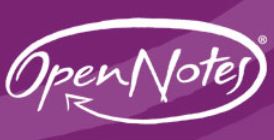- OpenNotes shows success with medication adherence (healthcareitnews.com)OpenNotes patients and clinicians on the same page (myopennotes.org)
This is the first large-scale study to reveal how doctors' notes affect patients when it comes to taking their prescriptions…the OpenNotes initiative, first conceived at Beth Israel Deaconess Medical Center in Boston…The program directly connects patients to their physician's notes through an online portal…Encouraging patients to utilize a Web portal to view their doctors' notes is a cost-effective and efficient way to influence medication-taking behavior…reminding them to read them before visiting their doctor is key to reinforcing the doctors' rationale for prescribing specific medications and dosage…increasing patient access to fully transparent doctors' notes should be on the radar screen of all healthcare providers…
- Technology leads hospital expenditures (healthcareitnews.com)
Hospitals are continuing to make big investments in technology as they recognize the need to effectively manage population health, according to C-suite execs polled for Premier's Fall 2015 Economic Outlook survey…More than 64 percent of respondents reported an increase to capital budgets this year, reflecting the need for investments in advanced technology to meet value-based care goals…39 percent of these respondents increased their budgets by at least 10 percent…The biggest investment for hospital expenditures is on health information technology, according to 72.2 percent of respondents to the survey…"Investments in HIT, data analytics and modern clinical infrastructure are foundational for providers to seamlessly deliver population health services across their inpatient, outpatient and alternative care sites,"…
- Hospitals Mess Up Medications in Surgery—a Lot (bloomberg.com)
About half of all surgeries involve some kind of medication error or unintended drug side effects…There is a substantial potential for medication-related harm and a number of opportunities to improve safety…Drugs delivered during an operation don’t have the same safeguards that other medication orders do. In most parts of a hospital, prescriptions are typically double-checked by pharmacists and nurses before they reach the patient. Operating wards are riskier…some kind of error was made in about one in every 20 drug administrations. Several medications are typically used in each operation, from anesthesia to antibiotics, so that rate translated into some kind of error or adverse reaction in every other surgery...
- U.S. oncology group rates blood cancer regimens, including cost (reuters.com)
…most influential source for U.S. oncology treatment guidelines…unveiled ratings aimed at helping doctors and patients assess the costs versus benefits of current therapies for two types of blood cancer…National Comprehensive Cancer Network…its new "Evidence Blocks" for multiple myeloma and chronic myelogenous leukemia are the first in a series that by the end of next year will encompass all oncology therapies, other than surgery or radiation… These are crafted to provide a little bit more information about cost, effectiveness, safety - all those things that the NCCN guidelines in the past haven't provided...The blocks give each therapy a score of between one and five in five categories: efficacy, safety, quality and consistency of evidence and affordability.
- MRSA treatment could be transformed by new precision drug therapy (theguardian.com)‘Stealth bomb’ antibiotic vanquishes drug-resistant bacteria (nature.com)
Radical combination of antibodies and antibiotics could effectively clear up ‘superbug’ infections and TB, as well as reducing harm to healthy microbes…A precision drug therapy that wipes out bugs that hide in the body could help clear up persistent infections that do not respond to standard antibiotics…The treatment works by tagging antibiotics onto antibodies (antibody-antibiotic conjugate) which home in on pathogens and deliver a lethal dose of drug directly to the heart of the infected tissues…The strategy could transform the treatment of patients with recurring bacterial infections, such as the hospital superbug MRSA (methicillin-resistant S. aureus), which can be extremely hard to treat even with powerful antibiotics. The approach also raises hopes for treating relapses in tuberculosis patients, and chronic infections that can take hold after heart surgery.
- Leapfrog: Hospital improvement ‘sluggish’ despite some stars (modernhealthcare.com)2015 Leapfrog Hospital Survey Results Now Available (leapfroggroup.org)
The Leapfrog Group has released the second round of its bi-annual hospital safety scores, which show “sluggish” improvement in patient safety among the nation's hospitals…Despite some improvement…hospitals are performing worse in critical areas like the rate of foreign objects left in a patient after surgery and other critical measures that cause hospital acquired conditions. But 133 hospitals, about 5% of all graded facilities, have earned an A, the highest grade, in every score since spring 2012.
- Genetics help explain poor showing for GSK malaria vaccine (reuters.com)
Scientists have found a genetic explanation for why the world's first malaria vaccine is not very effective in protecting some African children against the deadly mosquito-borne disease… The analysis…comes at a critical time for the experimental shot from GlaxoSmithKline, when global experts are assessing how it might be deployed…Mosquirix is specifically designed for use by African babies and toddlers. While it has the potential to help prevent many cases of malaria, researchers have been disappointed by its limited efficacy…scientists have discovered that genetic variability in a protein found on the surface of malaria parasites may help explain the patchy response because, while the protein comes in different forms, GSK's vaccine incorporates only one variant.
- Prescription drug use has risen in the U.S. (reuters.com)Trends in Prescription Drug Use Among Adults in the United States From 1999-2012 (jama.jamanetwork.com)
Prescription drug users rose from 51 percent of U.S. adults in 1999 to 59 percent of adults in 2011, according to a new study…It’s hard to say why prescription drug use would be on the rise…we know that older adults tend to take more medications than younger adults, and so we’d expect prescription drug use to increase as the U.S. population ages…something beyond the aging…appears to be driving the increase in prescription drug use…New drugs enter the market and old drugs lose patent protection and become less costly...patterns of prescription drug use evolve with scientific advances and with changes in clinical guidelines and policies regarding drug marketing and promotion.
- 15 Medical Conditions in Need of New Medications (pharmacytimes.com)
Americans want more medications to treat obesity and depression, among other conditions…
Obesity, which affects more than one-third of Americans, ranked highest among US physicians who were asked which conditions they wished had more pharmacological remedies…More than 6000 US physicians participated in the "PatientsMap" survey, which was conducted by the Social Survey Research Information Co, M3 Inc, and M3 Global Research and took place between December 2013 and February 2014…According to the US survey results, the following are the 15 conditions that most warrant new medications, with some information on how pharmacists can help these patients:- Obesity (27.4%)
- Depression (24.7%)
- Diabetes (22.1%)
- Dementia (20.5%)
- Migraine (19.5%)
- Anxiety (18.8%)
- Hypertension (17.8%)
- Chronic pulmonary obstructive disorder (16%)
- Lower back pain (15.7%)
- Dyslipidemia (15.6%)
- Osteoarthritis (15.1%)
- Fibromyalgia (14.8%)
- Headache (14.8%)
- Gastroesophageal reflux disease/nonerosive reflux disease (14.3%)
- Diabetic neuropathy (13.9%)
- Pharmacy-physician partnership hikes efficiencies (drugtopics.modernmedicine.com)
Sharing electronic health records access between physicians and pharmacists can improve workflow efficiencies for both… that pharmacist involvement in patient’s medication therapy improves adherence and reduces costs. However, since it is not financially feasible for many physicians to employ full-time pharmacists, collaboration is often the best alternative…Sharing EHR access is one way that collaboration can benefit patients while simultaneously improving workflow efficiencies…Pharmacists were able to more readily collect data related to patients’ medical conditions, prescribed medications, lab data, and treatment plans. Communication between the pharmacists and providers was significantly enhanced...






